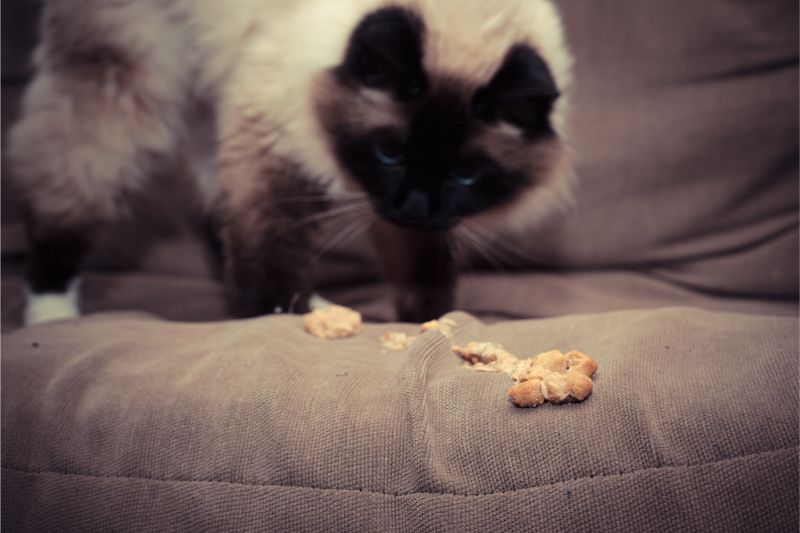What the Hack! What Causes Hairballs in Cats?

The sound is unmistakable. You are in the kitchen and look over to see your cat crouching and backing up, and then that sound! You know the one. The hacking you hear usually is followed up by saliva, vomit, and much to your dismay, a giant gob of fur. Yuck, right?
Hairballs in cats are a common problem among felines (and their owners who have to clean up the mess). But what causes these yucky balls of fur, and why are some cats more prone to them? The team at Volunteer Veterinary Hospital is here to explain.
What Is a Hairball?
Cats self-groom, which means that they ingest hair and debris on the coat. This fur normally passes through the digestive system without any problems, but over time, some hair gathers in the GI tract.
When this hair accumulates, they turn into hairballs, also called trichobezoars. These gobs of fur cannot be adequately digested, which is why your pet will vomit them out.
Why Do Cats Develop Hairballs?
If you are worried that your cat is sick because they hacked a furball, never fear. Most cats will regurgitate these balls at least a few times in their life. The longer the cat’s fur, the more likely they are to develop hairballs. The more the cat self-grooms, the greater their chances, too.
When It Becomes a Problem
Because your pet’s digestive system is not equipped to digest fur, when hairballs form they can become quite large. They can even become large enough to cause an obstruction. Likewise, there may be certain problems associated with hairballs. Watch for the following signs of trouble.
- Your cat is sleeping more and is less interested in play
- Your cat is no longer eating food or has lost weight, which can indicate that there’s a hairball lodged in the GI tract
- Your cat is attempting to hack something up, but they can’t get anything out
- Their belly is distended and hard to the touch
- They are constipated, straining to eliminate, or are experiencing diarrhea
In any of these scenarios, please contact us for an examination. While most hairball issues resolve themselves on their own, sometimes an emergency situation can develop without intervention.
Preventing Hairballs
The best way you can keep hairballs from developing is by grooming your cat often. This includes shampooing them, as well as brushing them out. If you don’t feel comfortable shampooing your cat, then take them to a professional groomers, where they can also clip the nails, clean their ears, etc.
There are also a number of products on the market that can help expel the hairball, such as hairball gels and treats and food that are meant to eliminate hairballs.
If you would like more information on hairballs in cats, or would like to schedule an wellness appointment, please do not hesitate to contact us.

